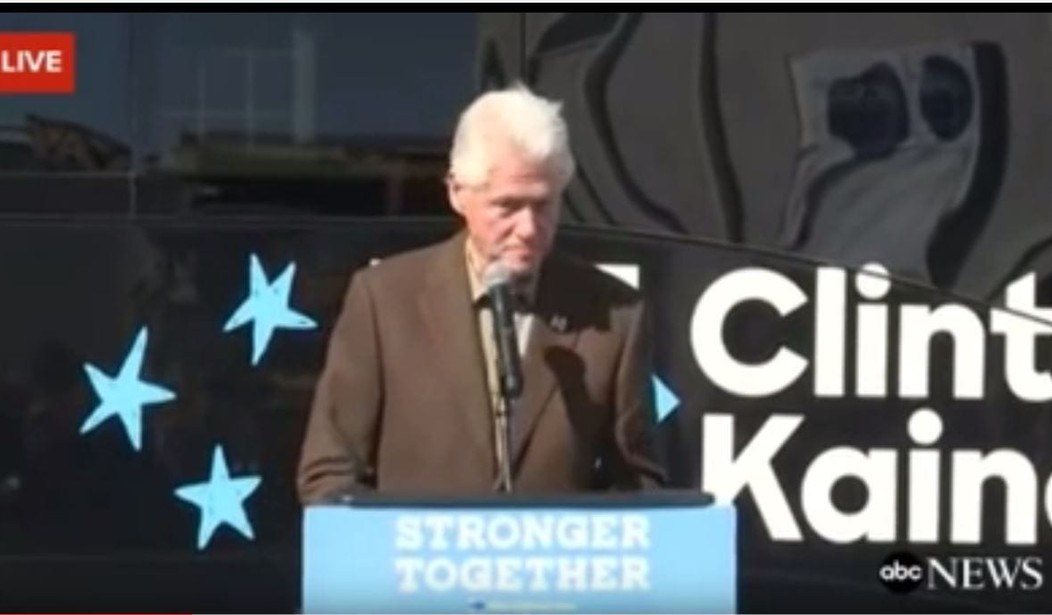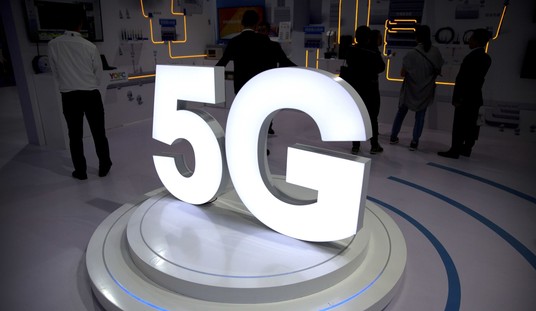One of the most farcical stories being churned out to explain Hillary Clinton’s inexplicable loss is the idea that it was James Comey who caused the disaster. My friend and a co-founder of RedState, Josh Trevino, deconstructs this Democrat version of the Nazi Dolchstoßlegende on Facebook:
There’s a lot wrong with HRC’s belief that the FBI cost her victory this week. In no particular order:
1) We know that there was an inflection point in the race, around Labor Day — nearly two months before Comey’s late-October letter — at which prior undecideds moved more toward DJT than HRC. Those two rates of affiliation continued diverging from that point, and as a rule of thumb, the later a voter decided in this race, the more likely he or she was to decide for the eventual victor. It’s not possible to disentangle that preexisting trend from any actual effects of the Comey letter.
2) Remember, Donald Trump is President-elect because of — more than anyone else — non-college-educated Midwestern whites. If the national Democratic elite believes that cohort is fundamentally moved by inside-the-Beltway process stories, there’s a pretty significant disconnect underway.
3) For sake of argument, lets say non-college-educated Midwestern whites are moved by inside-the-Beltway process stories. In that case, the Comey letter still didn’t change anything: it only reinforced preexisting trends and perceptions that were entirely the candidate’s creation.
4) Future losers first assign blame to others. Future victors first seek fault in themselves.
If there is one guy who knows why Hillary Clinton lost, it is Bill Clinton:
Hillary Clinton’s 36-year-old campaign manager, Robby Mook, dismissed the advice of the 70-year-old former president as the ravings of an aged athlete desperate to regain his former glory, and insisted instead that young, Latino and black voters were the key to winning 2016.
“Bill Clinton had railed … for months” against the campaign’s disinterest in the working-class, “wondering aloud at meetings why the campaign was not making more of an attempt to even ask that population for its votes,” Politico reported.
“Bill Clinton’s viewpoint of fighting for the working-class white voters was often dismissed with a hand wave by senior members of the team as a personal vendetta to win back the voters who elected him, from a talented but aging politician who simply refused to accept the new Democratic map,” the report added. “At a meeting ahead of the convention at which aides presented to both Clintons the ‘Stronger Together’ framework for the general election, senior strategist Joel Benenson told the former president bluntly that the voters from West Virginia were never coming back to his party.”
…
When Bill Clinton spoke on the campaign trail about the voting bloc ignored by Mook and other senior staffers, he argued repeatedly that, as a white Southerner, he felt their pain.He did this sometimes in unflattering terms, but usually from a place of self-deprecating humor.
“The other guy’s base is what I grew up in,” he said in October during a campaign stop in Fort Myers, Fla. “You know, I’m basically your standard redneck.”
His comments came as part of a larger appeal to his audience to reach out to undecided voters, especially pro-Trump supporters, and tell them the Democratic nominee understands and cares.
“Don’t engage in our version of all this screaming,” Clinton said. “Go out there and look people in the eye who aren’t going to vote for her and tell them we still want them to be part of America. Tell them we need them.”
“I know how they feel,” he added in reference to angry and frustrated voters, many of whom gravitated toward Trump. “And I’m telling you, the older you get, the worse it is if … you think you can’t do anything to change the future.”
If this sounds familiar, it is because Bill Clinton recognized as neither his harpy, kleptocratic wife nor anyone in her entourage did that this was a replay of 1992 except Donald Trump was playing the role of Bill Clinton running against an allegedly out-of-touch George H. W. Bush and focusing “like a laser beam” on “It’s the economy, stupid.” To a great extent this is not surprise. Any man who has been married any number of weeks knows that your wife will always accept the opinion or advice of any random stranger long before she will listen to her husband. When you add that to a candidate who already looks with contempt upon most of America (this courtesy of Wikileaks)

you have a candidate running a campaign based upon what she wants to hear, not upon the actual issues.
To his credit, Bill Clinton actually did something about it:
The aging ex-commander in chief decided to go it alone, and launched a personal campaign to win the ignored Americans in small, rural towns and cities across the Rust Belt and the South.
Bill Clinton’s remarks in Lansing two days before the election were no mistake, and, in his mind, it was not an off-script moment. For America’s 42nd president, who spoke at more than 60 campaign rallies, reaching out to these discarded voters became an increasingly crucial issue.
“In the final weeks of the campaign, a despondent Mr. Clinton held a flurry of his own events in Ohio, Iowa, the Florida Panhandle and Wisconsin, talking to the white voters who like him but who view his wife with distrust,” the New York Times reported.
But it was too little and too late and Bill Clinton was the only guy in the organization who believed Hillary could win by deliberately ignoring tens of millions of people who are regular voters. In the end, blacks and Hispanics didn’t show up in the numbers she needed and she lost white women to Donald Trump.














Join the conversation as a VIP Member